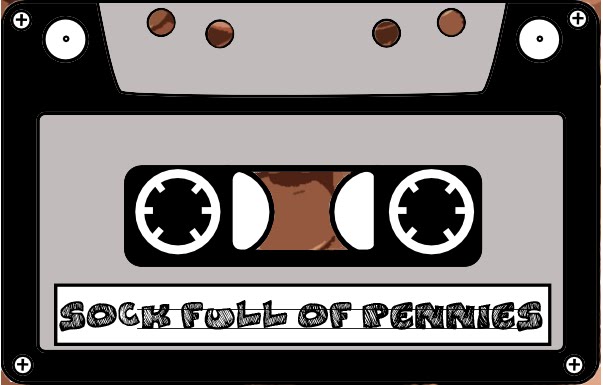While
riding shotgun in my mom’s minivan at age thirteen, I had my second ever musical
“a-ha” moment (the first being my discovery of Goldfinger). After some begging,
my mother let me put on the local rock station for the remainder of the ride.
As I turned the dial, booming vocals began to pulse through the speakers along
with a massive guitar riff laden with distortion and reverb, and in that moment,
I knew that this—whatever “this” was—was definitely how rock’n’roll was
supposed to sound.
I
later discovered that the song was “Plush” by Stone Temple Pilots, off of their
debut Core, an album somehow even
bigger and more “rock” than the single. Released in 1992, the record’s production
calls back to the 70’s in its enormous sound—Eric Kretz’ snare drum booms like
a mortar shell, while Dean DeLeo’s guitar chords sound the product of forty
instruments rather than just one. The composition is largely straightforward,
all pentatonic scales and 4/4 timing, yet STP really guts that simple formula
for everything it’s worth, piling soaring solos and bombastic basslines into
each piece until it seems about to burst.
The
sound of Core screams rock’n’roll,
yet it isn’t all loud guitars and reverby drum fills. Stone Temple Pilots
explore a very diverse sound palate on their debut record, shaping a classical
landscape in “No Memory,” playing with an eastern-tinged bridge in “Sin,” and
being all-out goofballs on the improv’d “Wet My Bed.”
Similarly,
while much of the record is definitely loud, the band proves to have a fantastic
understanding of dynamics as well. “Dead and Bloated” may be explosive in its
syncopated hits and distorted riffs, yet “Creep” carries just as much power,
albeit in a different form. The acoustic guitar meanders through gentle open
chords, Robert DeLeo marks changes with atonal bass fills, and Kretz wields his
sticks more like paintbrushes than hammers. Core
is an example of a band in control of its sound, four musicians able to turn
their intentions into audio without compromise.
Yet
for all its exploration and diversity, Core
is foremost a hard-rocking record, and no song drives that point home harder
than “Piece of Pie.” The tune is composed of riff after monstrous riff, the
guitars chugging in a drop tuning over a visceral drum beat. Singer Scott
Weiland growls his microphone into submission, using his voice to build the
intensity of each verse until the chorus goes off like a grenade. “Piece of
Pie” is Stone Temple Pilots in top form, the band’s huge and heavy sound
employed to full effect.
As
a whole, Stone Temple Pilots creates a gigantic monolith of rock, but it is
lead singer Scott Weiland who truly demands attention. He brandishes his voice
with extreme discipline and power, which allows him to produce multiple
different timbres, a true anomaly amongst rock singers. His vocals boom loud
and deep in “Plush” and “Where the River Goes,” yet in “Naked Sunday” he hones
an edge onto his notes that is sinister and yet endearing. Similarly, in
“Creep” his words take on a gentle and mournful rasp as he sings “I’m half the man I used to be.”
Scott
Weiland commands a vocal style simultaneously methodical and multidimensional,
the secret weapon that makes Core
such a potent and evocative record. Like its instrumentation, the lyrics are
largely simple and unadorned, yet the writing certainly fits the intensity of
the album. Weiland describes his lyrics as “small, sick poems” which explore
the macabre: “Plush” relates a piece of news describing the discovery of a
murder victim’s body, while “Wicked Garden” touches on the loss of innocence. Weiland
has stated that he finds “the darker shades of life more attractive than the yellows and oranges,” and the lyrics of Core
certainly dive right into that darkness.
Weiland
shies away from no topic or perspective, and no song exemplifies this better
than the first single “Sex Type Thing.” For this song, Weiland pulls
from a deeply personal experience in which a former girlfriend was raped by a group of men. And as if that very idea wasn’t dark enough, Weiland
takes on the perspective of the rapist, using lines like “you shouldn’t have worn that dress” and “I know you like what’s on my mind” to embody the sociopathic sense of entitlement the man feels for the woman’s body. Weiland’s
fearless personification of a heartless, misogynistic criminal in “Sex Type
Thing” draws attention to the intense wrong of the situation without giving him
an ounce of credibility or quarter, using the position of power in this
scenario to take away any and all justification or excuse.
Stone
Temple Pilots use colossal instrumentation and dark subject matter to give
their album serious weight, and almost twenty-five years after its release, its
imprint remains firm and defining. To me, Core
is through and through a fully-formed rock record, and one that I’ve returned
to countless times since that day in the minivan. It is both a staple of 90’s
alternative rock and my own music library, and no matter how many times I’ve
heard “Creep” or “Plush” thump through my car’s speakers, each listen remains
fresh and monumental as the first.
Tunes To Check Out:
2) Piece of Pie
3) Sin

